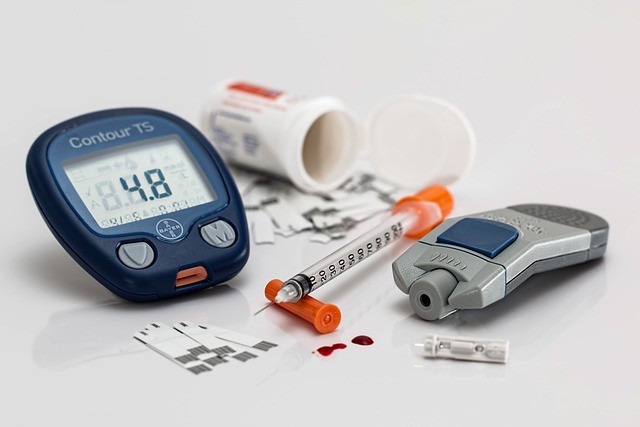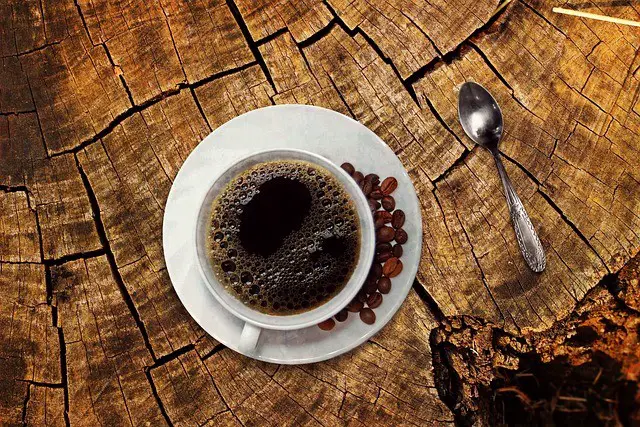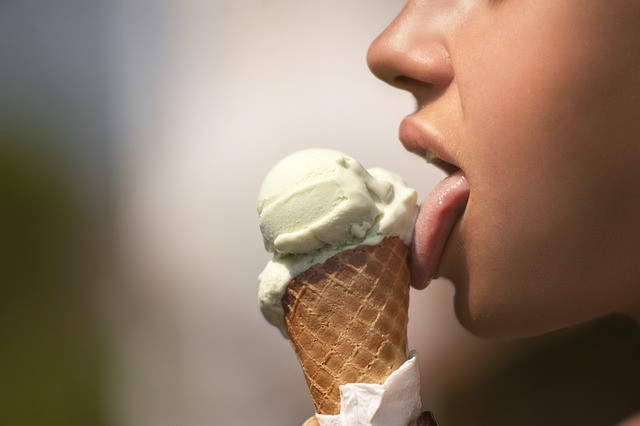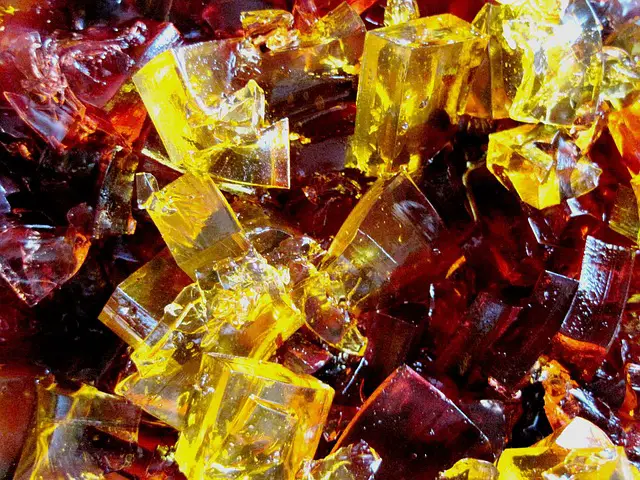The World Health Organization reports that 422 million people are diabetic. Diabetes accounts for 1.5 million deaths. The numbers have increased over the years and will keep rising due to the rise in diabetes risk factors. Organizations worldwide are pushing to ensure the numbers reduce 50% by 2025.
Uncontrolled blood sugar, if not taken care of, can be life-threatening. Whether it is Type 1 or Type 2 diabetes, food choices play a big role in assisting with blood sugar control.
Today, we will be looking at one important aspect of regulating blood sugar levels. You can’t have sugar with diabetes. Although, there are sugar substitutes that most healthcare providers tell you to take. These can sweeten foods without spiking blood glucose levels.
Stevia is a crowd’s favorite among people with diabetes. Yet, an important question you should ask yourself is, will Stevia raise blood sugar?
Reading this article answers whether stevia affects blood glucose levels or insulin levels. You will also know the dangers of using it in diabetes and its negative effects. Learn how other artificial sweeteners affect blood sugar. Buckle up!
Will Stevia Raise Blood Sugar?
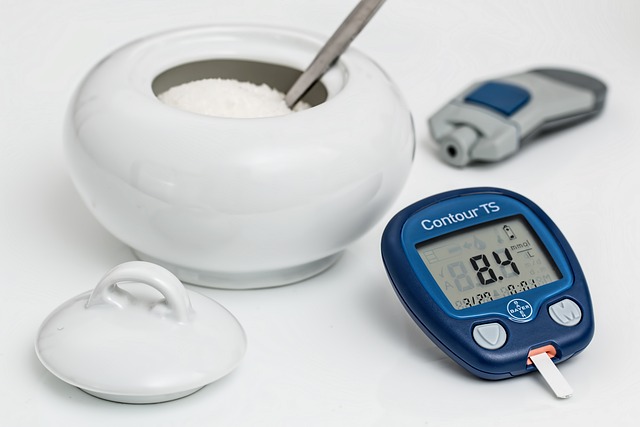
When trying to control blood sugar levels, sugar, a simple carbohydrate, is off the table. Natural sweeteners like honey, brown sugar, maple syrup, cane sugar, and agave syrup are high in sugar and calories that spike blood sugar.
This is why nonnutritive sweeteners are better than nutritive varieties. You can use Stevia sweetener to control the release of insulin in the body. Before we discuss will Stevia raise blood sugar, let’s know what it is.
What is Stevia?
Stevia is one of the low-calorie sweeteners made from Stevia leaves. To lower caloric intake, sugar intake and carb intake, this sweetener is a good substitute for sugar. It has a low caloric content, a glycemic index of 0, and is more than 200 times sweeter than table sugar. This is a win for a sweet tooth.
Although you know Stevia sweetener as one of the artificial sweeteners, this is not true. This is because it is from the Stevia plant. The common types of Stevia preparations are pure rebaudioside A and stevioside. The former is from stevia leaves or crude extracts. Stevioside is from the stevia Rebaudiana Plant.
The U.S. Food and Drug Administration does not approve of rebaudioside A . It has negative effects on your kidney, heart, and reproductive system.
This sweetener is rich in stevia glycosides that give it its sweet taste. Although, this compound can leave a bitter aftertaste. Stevia sweeteners in your grocery store contain other ingredients to reduce this effect. Moreover, this compound gives stevia its antidiabetic properties and antioxidant properties.
Brand names that contain stevia extract include:
- SweetLeaf
- Truvia
- Sun Crystals
- Pure Via
These artificial sweeteners overprocessed and may contain other ingredients for more flavor. Truvia, for example, contains the sugar alcohol erythritol. It is also ready for sale after 40 processing steps.
Read nonnutritive sweeteners’ labels to know which extra ingredients are in them. This helps to know how they can affect people with diabetes.
Does Stevia Raise Blood Sugar or Insulin Levels?
The natural sweetener Stevia has been a close friend to people with diabetes. But is it a foe in disguise?
The American Diabetes Association and American Heart Association confirm Stevia and other low-calorie sweeteners to be safe for diabetics. This is as long as they don’t add on extra calories from other sweet foods at later meals.
Will Stevia raise blood sugar? Stevia does not spike blood glucose or insulin levels. But some forms like abstract stevia (Stevia rebaudiana Bertoni) lower blood sugar levels. For people with uncontrolled blood glucose, stevia can:
- Increase production of insulin
- Promote insulin sensitivity of cell membranes
- Stabilize blood glucose and insulin
- Counter the pathophysiology of diabetic complications
Does Stevia Spike Insulin?
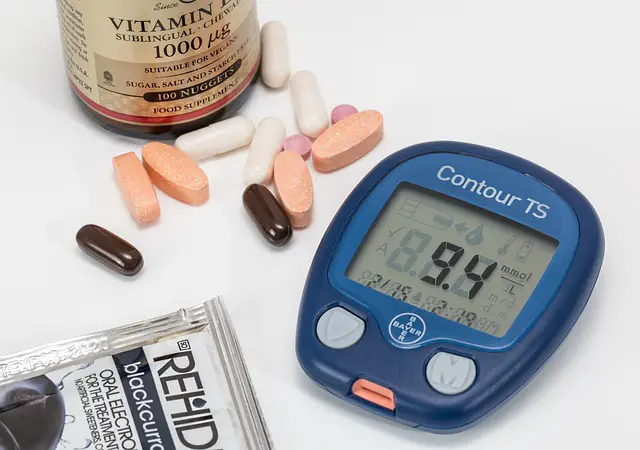
No, stevia, unlike regular sugars, does not spike insulin. This randomized clinical trial investigated the effects of stevia on glycemic and lipid profile in type 2 diabetes. Stevia resulted in no significant differences in insulin or glycosylated hemoglobin (HbA1c). Clinical studies provide evidence that stevia can be a good alternative for sucralose for diabetes.
Does Stevia Increase Insulin Resistance?
Insulin resistance occurs when the body can no longer respond to insulin. Your body is unable to convert glucose to energy. Excess abdominal fat is one factor that contributes to insulin resistance. Low-calorie sweeteners can reduce how much carbs you consume for weight loss.
Weight management is important for controlling insulin resistance. Going for an alternative to sugar is a step in the right direction. What are the effects of Stevia rebaudiana Bertoni on insulin resistance?
What Does Research Say?
Scientific studies have proven the health benefits of using Stevia. You can use it for blood glucose regulation. In 1986, a clinical study evaluated the effects of aqueous extracts of Stevia on glucose tolerance. A 5 g dosage of the aqueous extract administered every 6 hours for 3 days improved glucose tolerance.
Animal studies have proven that stevia can help improve insulin resistance. This is by altering the gut microbiota. One study on animal models investigated the effects of stevia on energy intake, body weight, and glucose tolerance.
The results showed that nonnutritive sweeteners did not alter feeding behaviors. They had no effects on body weight, or glucose tolerance. More prospective cohort studies in humans will support this evidence.
Other observational studies report that Stevia consumption can increase skeletal muscle glucose transport. A study was done to assess the effects of Stevia on glucose transport. The subjects were insulin-sensitive and insulin-resistant rats.
It resulted in increased insulin sensitivity in the whole body after acute consumption. Smaller doses improved insulin action on skeletal muscle glucose transport. The results were in both lean and obese rats.
Observational studies show that increased glucose tolerance is not the only benefit of Stevia.
Health Benefits of Stevia Consumption
Here are the benefits of adding stevia to your diet:
- Antioxidant properties: One study evaluated the effects of an aqueous extract of Stevia on the expression of selected genes. The genes caused cell death and the cellular oxidative defense in pancreatic tissues. The evidence suggests that Stevia causes clinical improvements in diabetics. This is thanks to the overexpression of genes of antioxidative defense systems.
- Improves satiety and reduces hunger: Low-calorie sweeteners can help control hunger and food intake. Substituting regular sugars with low-calorie sweeteners is an efficacious weight management strategy. This study tested the effects of preloads on postprandial glucose, insulin levels, satiety, and food intake. The preloads contained stevia, table sugar, and aspartame. Stevia preloads lowered postprandial glucose levels more than in regular sugars and aspartame.
- Consumption of low-calorie sweeteners preloads had similar levels of satiety to those on high-calorie sucrose preloads. Stevia preloads can reduce hunger in diabetics.
- Reduces cravings: The above study reports that individuals on preloads containing low-calorie sweeteners do not compensate by eating more at later meals compared to those on sucrose who did.
- Protects your liver and kidneys from damage: A 2013 study investigated the antidiabetic properties, antioxidative and renal protective properties of stevia. The working hypothesis was that the polyphenols in the stevia plants gave the protective effects of Stevia leaf powder.
Stevia dietary supplements reduced blood glucose, insulin levels, and plasma malondialdehyde (MDA). An increase in free radicals increases MDA, making it an indication of liver damage.
Streptozotocin antibiotic induces type 1 diabetes. It also induces kidney damage. It causes a reduction in glomerular filtration rate when used in the diabetic group. But using Stevia with it alleviated its effects improving kidney function.
- Improves lipid profiles: Observational studies have convinced the American Heart Association to declare Stevia as one of the safest sugar substitutes. The observational studies suggest that Stevia can also reduce blood cholesterol levels. This is because some forms of Stevia can lower insulin levels, a storage hormone, promoting lipolysis.
We have looked at the benefits of consuming moderate amounts of stevia. But can its consumption have negative side effects on you?
Stevia and Diabetes Dangers
Are there adverse effects of consuming nonnutritive sweeteners on people with diabetes? Stevia has no impact on blood sugars or insulin levels. This is only if consumed in moderate amounts. The U.S. Food and Drug Administration considers Stevia safe for consumption.
Diabetics should be mindful of the types of sweeteners they consume. Stevia usually contains more ingredients to improve Stevia taste, appearance, and texture including:
- Sugar (sucrose)
- Maltodextrin
- Dextrose
- Sugar Alcohols
- Natural flavorings
Dextrose and Maltodextrin can increase blood glucose levels. Avoid blends with these two sweeteners. You need to know how to read nutritional labels to track your carb intake.
Besides this, Stevia can also have side effects on some people. Consuming nonnutritive sweeteners can alter the concentration of beneficial gut bacteria. This helps with immunity building and digestion.
Variations in gut bacteria can cause weight gain. It can also reduce high-density lipoprotein levels (HDL cholesterol). This increases your risk of developing heart disease.
Sugar alcohols in stevia can cause digestive issues. Some include bloating, nausea and vomiting, and abdominal pain.
Does Stevia Raise Blood Pressure?
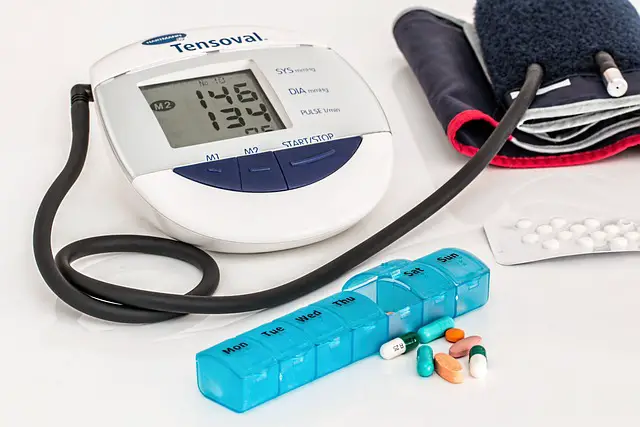
Stevia does not raise blood pressure. It can help lower your blood pressure. The phytonutrients in it can help widen blood vessels reducing your blood pressure.
Consuming stevia on hypertensive medications can drop your blood pressure too low. Before using stevia on these medications, speak to your doctor about safety. You will need to track your blood pressure to avoid hypotension.
Which Sweetener Does Not Spike Insulin?
Stevia is safe for consumption by diabetics. But, some forms can spike your insulin because of the added ingredients. Several non-nutritive sweeteners can be good for diabetics. They have a minimal impact on blood glucose levels.
Safe Sweeteners for Diabetics
Other non-nutritive sweeteners do not trigger weight gain. They also do not affect insulin levels. They include:
Monk Fruit Sweetener
Popular among keto dieters, this low-carb sweetener has minimal effects on blood sugar. Consumption of monk fruit can increase the rate of glucose absorption in the body.
There’s no significant difference in how stevia and monk fruit impact blood glucose. The main difference between stevia and monk fruit is in the price tag. Monk fruit is more expensive due to its rarity.
Erythritol
This is a sugar alcohol with a similar texture and taste to sugar. It does not share the negative effects on blood glucose as sugar. A study investigated the effect of an oral administration of erythritol on serum glucose and insulin levels in healthy subjects. They found that its consumption did not increase blood glucose or insulin levels. The study also found that there was a 90% erythritol absorption and excretion in urine.
This difference between stevia and erythritol is in taste. The former is sweeter than sugar while the latter has 70% of the sweetness of sugar. This makes erythritol a good choice for transitioning from sugar-sweetened foods.
Aspartame
Aspartame is another sweetener that diabetics can use. It does not spike insulin. The U.S. Food and Drug Administration considers aspartame safe for consumption. A pilot study assessed the effects of aspartame ingestion for 12 weeks on glycemia. Consumption of Aspartame preloads had no effects on blood glucose. It didn’t affect insulin, body weight, and appetite either.
Consuming aspartame in obese diabetics raises fasting blood sugar and reduces glucose tolerance. It has no effects on blood sugar or glucose tolerance for lean individuals.
There is one major difference between stevia and aspartame. Stevia lowers blood glucose in lean and obese individuals. Aspartame can cause obesity-related impairments in glucose tolerance. Being the oldest in the block and most studied, its safety is more guaranteed compared to others. Future studies will tell us which is most effective.
Which Sweetener is Worst for Diabetics?
The worst sweetener for diabetics is sucralose, known as Splenda. It contains 3 calories and 0.9 g of carbs since it contains sucralose, dextrose, and maltodextrin. The glycemic index of dextrose is 100 and its glycemic load is 95. Maltodextrin has a glycemic index of 95 and a glycemic load of 94.
This sugar substitute can impact your blood sugar which makes it a bad choice for diabetes. At very high temperatures, sucralose decomposes to form toxic compounds (chloropropanols and dioxins). This means it is not a great idea to bake with this sweetener.
How Much Stevia Should a Diabetic Take Daily?
The Scientific Committee on Food (SCF), FDA, and European Food Safety Authority (EFSA) all define the dietary intake of steviol glycosides up to 4 mg per kg. These bodies recommend one tablespoon (4.2g) of stevia is per day. Moderate amounts of Stevia will do, don’t overdo it.
Which Sugar is Worst for Diabetics?

Added sugars are the worst sugars for diabetics. You find them in sugary beverages such as soda and fruit punches. They have no nutrition benefits, but only provide the body with empty calories. People with diabetes should avoid these drinks. This is because they are high in simple sugars that can spike blood sugar levels.
Final Thoughts
Will stevia raise blood sugar? No, it will not. Since sugar and other natural sweeteners are off the table, stevia is an okay substitute. Your cholesterol levels will be okay as well if you use this sweetener. You may want to get a green flag from your doctor to introduce stevia to your diet while on hypertensives meds.
Have you used Stevia before? Which type do you go for? Which other sweeteners are in the stevia blend you use and how do they affect your blood sugar levels? Besides stevia, have you tried any of the nonnutritive sweeteners mentioned above? Which one was most effective for blood sugar regulation? Share your experiences with us in our comments below!

